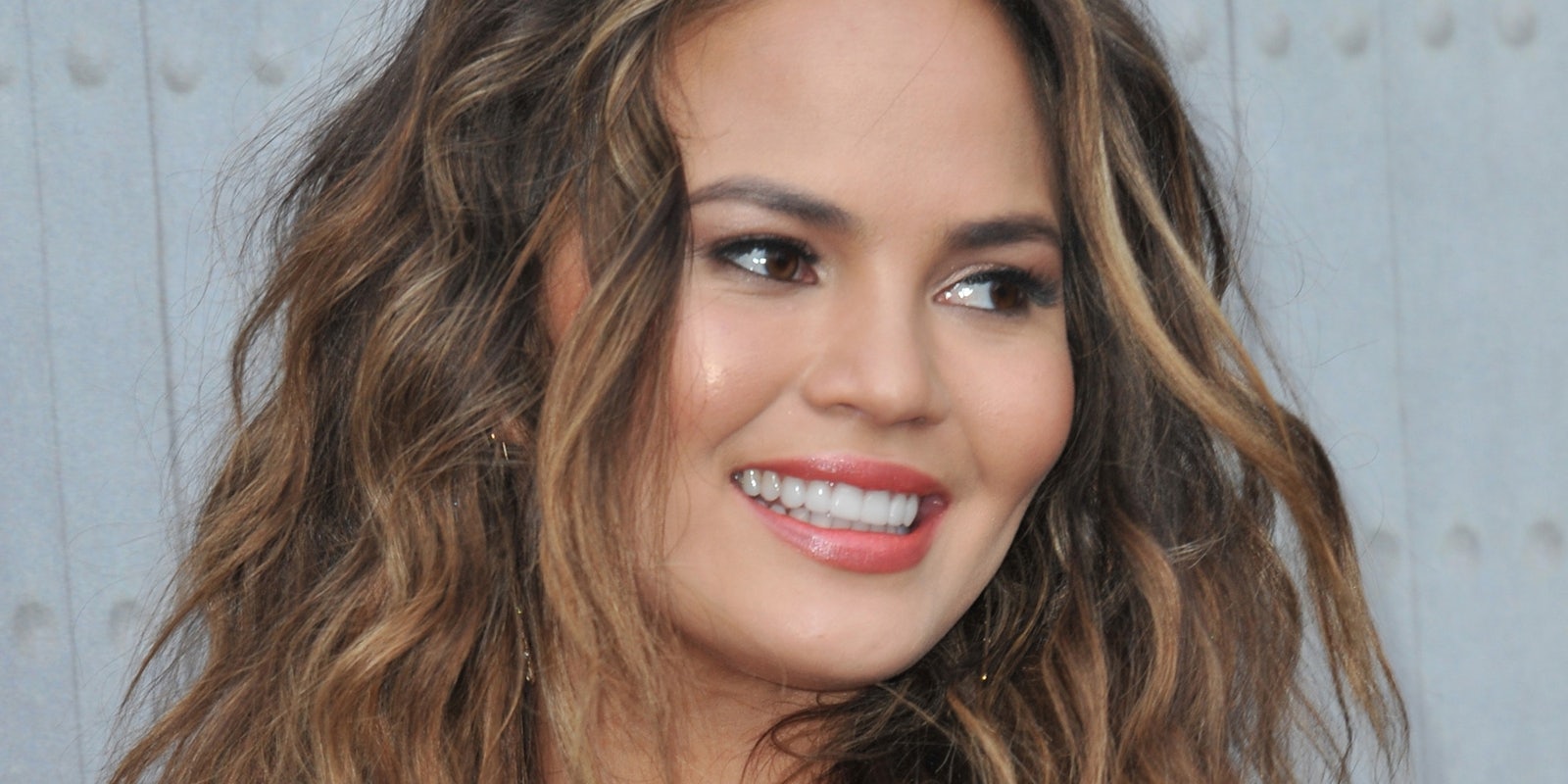Model and cookbook author Chrissy Teigen has been under fire all morning after tweeting that she isn’t that offended when people use the word “oriental” in reference to Asian people. And it all started with salad dressing.
Last night, Teigen tweeted that she was weirded out that there was an option for “oriental dressing” for a meal on her flight. She acknowledged that it’s an antiquated term, but that it has no place on a modern menu.
https://twitter.com/chrissyteigen/status/775508133561176064
https://twitter.com/chrissyteigen/status/775508413602230272
From there, someone asked if the term “oriental” is offensive, to which she replied that she thought of it as more “old school,” and that while she’s not outright offended, no one should be using it anymore. Teigen chalked up its usage to “forgivable ignorance.”
https://twitter.com/chrissyteigen/status/775510409927352320
https://twitter.com/chrissyteigen/status/775537164788563969
Teigen, whose mother is Thai, also says it would be weird but not wrong to call her mother “Siamese,” since Thailand used to be Siam (though it’s unclear if that was what it was called when Teigen’s mother was born).
https://twitter.com/chrissyteigen/status/775537823722143745
Earlier this year, President Obama signed a bill prohibiting the use of the words “negro” and “oriental” in federal documents, to which New York Congresswoman Grace Meng commented, “At long last, this insulting and outdated term will be gone for good.”
To break it down simply, the word Orient means East and is used as a catchall phrase for anything “Eastern,” which in a “Western”-centric world means Asia. That centering of the West, and generalizing of an entire continent of cultures into one demonym, are what many find offensive. Teigen argues that it’s outdated, and that she can’t be offended by someone who doesn’t know that Asian-American (or, you know, the demonym of a specific country) is the preferred nomenclature. But others say that intent doesn’t matter if the end result is offensive.
https://twitter.com/chrissyteigen/status/775546947239378944
The argument between intent and impact is central to many discussions about racism, because few people set out in their everyday lives to be racist. Instead, racism comes from ignorance, from not questioning learned behaviors, and from refusing to refer to people the way they want to be referred.
For instance, some Asian people have defended the use of “oriental.” In an essay for NPR, Kat Chow says her father, who immigrated to America from Hong Kong in 1969, uses “oriental” to describe himself. “‘We use Asian, or Asian-American, now,’ I’ll tell him. ‘That term’s been outdated for a long time.’ He just shrugs.” In an op-ed for the LA Times, Jayne Tsuchiyama writes, “Apparently Asians are supposed to feel demeaned if someone refers to us as Orientals. But good luck finding a single Asian-American who has ever had the word spat at them in anger.”
However, there is a big difference between how someone chooses to refer to themselves or within a group, and acceptable common usage as a whole (just look at every conversation around the N word). This is something Teigen recognizes.
https://twitter.com/chrissyteigen/status/775548390801309696
https://twitter.com/chrissyteigen/status/775665135654502400
So, to recap, Chrissy Teigen doesn’t like the word “oriental,” understands the reason it’s offensive to others, but doesn’t feel personally offended if someone uses it out of ignorance. Seems like…not the worst?
